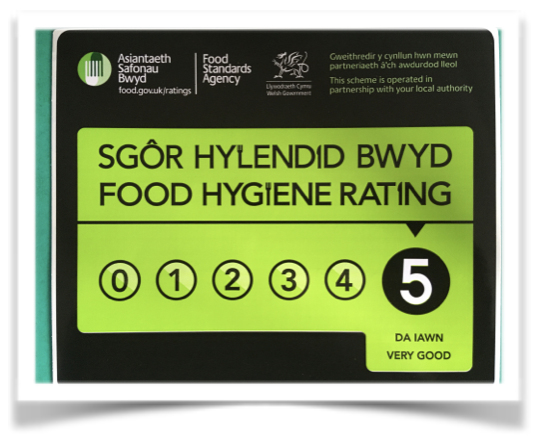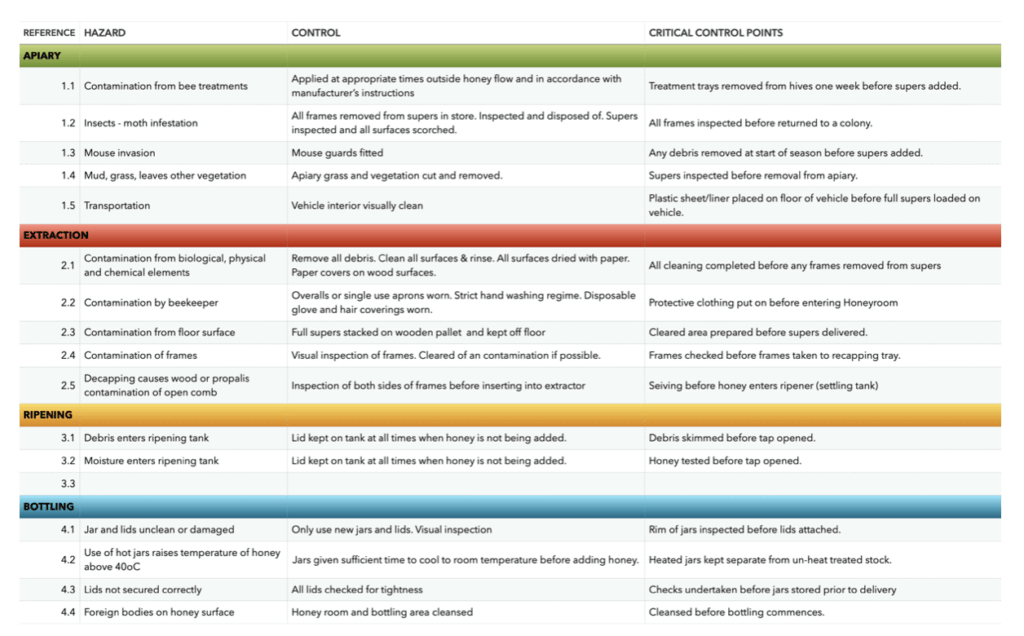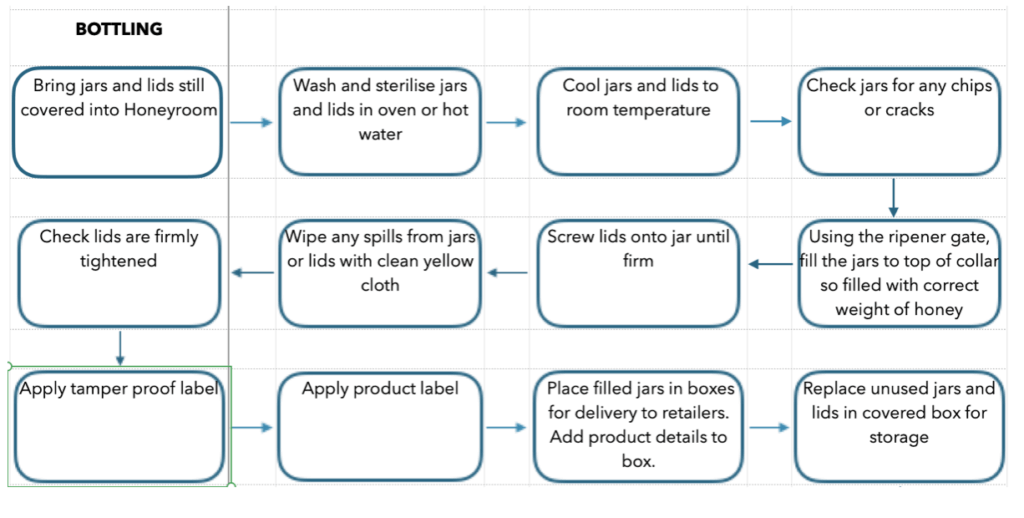– a visit from the council
I received an invitation to register with Swansea Council under the Food Hygiene (Wales) Regulations 2006. I was visited by a Council representative and am now registered and hold a Food Hygiene ratings certificate.

The initial contact by the council requesting a visit makes the blood run cold but really its best to treat it like a visit from the Seasonal Bee Inspector – with open arms. The key to success is preparation:
- Complete an online training course. May not be a requirement but shows that you are taking this visit seriously. My ‘inspector’ made a note that I had completed a Level 2 food safety and hygiene course;
- Clear the area you use of clutter and give all surfaces a spring clean;
- Think through your normal practices – use a HACCP analysis to identify areas that may need improvement;
- Keep a record of the honey extracted (dates and amount) and show how you can link this to a lot number and honey sales.
- Consider what a professional kitchen would look like and what you would wear – face mask, gloves and hairnet. Plastic apron and shoe coverings. Keep these in a plastic box along with clot hs for wiping surfaces clean and disinfectant spray.
The Inspector is looking at three areas:
- Food hygiene & safety procedure – accepted good practice for beekeepers;
- Structural/cleaning issues – accepted good practice for beekeepers;
- Confidence in Management/Control Procedures. “Proactive and ability of self-regulation. Satisfactory documented food safety management procedures commensurate with the type of business, which may be subject to eternal audit process.
These may sound a bit daunting but we are not being compared with large-scale or national honey producers. But the Inspector must have confidence in you and the documentation you provide. You must have some system for recording your activity which show the date of the bottling process; where the raw honey came from if you have more than one apiary; and the Lot number which appears on the individual labels. I suggest that you keep the information in a notebook or use a spreadsheet.
One interesting piece of advice from the Inspector: I would recommend that you do not use Dettol anti bactericidal spray as it does not comply to a BSEN standard within the food industry. There are two officially recognised laboratory standards for assessing the effectiveness of disinfectants against a range of microorganisms. These are BS EN 1276:1997, BS EN 13697:2001. All the main supermarkets own brand conforms to this standard.
It is useful to prepare a certain amount of documentation. An HACCP is essential. This is the one I prepared for the visit.
HACCP

In preparing the HACCP it is essential to consider the processes that you follow, step by step. This is what I do.

The discussion during her visit focussed on the bottling process but I guess the Inspector was reassured by the process of extraction and honey ripening I had recorded in the flow charts.

And so we get to the heart of the process of most interest to the Inspector – how you maintain good hygienic practice during the bottling process.

David O’Carroll
Q. Am I required to register under food hygiene regulations?
A. This is a matter for your local authority’s food hygiene officers to determine.
Q. Do I have to register if I do not sell my honey?
A. It is providing honey for consumption that is the issue, even if you were providing jars of honey for a charity fund-raising event.
Q. Can’t I just rely on taking common sense measures to ensure my honey is free of foreign bodies?
A. You should take a structured approach to producing honey. Taking a Level 2 course will provide you with the knowledge to enable you to complete an analysis of your procedures to ensure that they follow the widely accepted HACCP principles of food hygiene. Level 2 Food Hygiene is designed for anyone who works with or handles food and covers an introduction to food safety and hygiene, the impact of food-borne illnesses, food law, food preservation, storage and temperature control, personal hygiene and the principles of HACCP.
Q. Are there any other requirements I must follow?
A. Yes. There are specific regulations covering the labelling of honey jars including the descriptions that can be legally used for your honey.